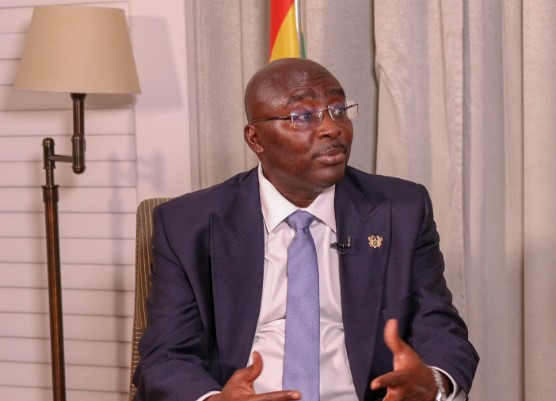×
The Standard e-Paper
Kenya’s Boldest Voice

Ghana Vice President Mahamudu Bawumia during an interview with The Standard. [File, Standard]
Amongst the dignitaries who attended President William Ruto's inauguration on Tuesday, September 13 was Ghana's Vice President, Mahamudu Bawumia. The Standard had a sit down with him after the ceremony and he had this to say.